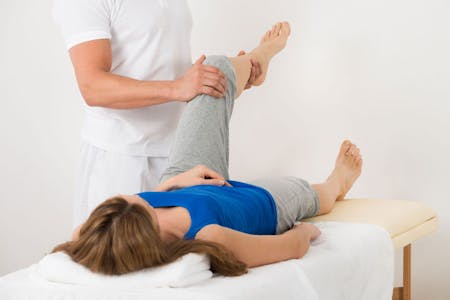
Joint pain is a very common condition that we treat on a daily basis. One of the many treatment techniques physical therapy professionals are trained to use is a technique called joint mobilization. Joint Mobilization is utilized to relieve joint pain, improve mobility, and improve physical function (the ability to walk and move).
Types of Joint Mobilization
There are a number of techniques to mobilize (move) joints in the body. These mobilization techniques often have specific names derived from the clinicians that created and successfully tested them on patients.
Examples of some techniques are:
- IASTM or Instrument Assisted Soft Tissue Mobilization
- Mulligan Manual Therapy or mobilization with movement
- Neural Tension Mobilization – specialized techniques to move nerves
- Graded Mobilizations – low velocity movement techniques with various amplitudes
- Manipulation – high velocity, low amplitude thrust at or near the end-range of joint mobility
Details About a Specific Type of Mobilization - Manipulation
Spinal manipulation—sometimes called “spinal manipulative therapy”—is utilized by physical therapists here at our practice. We perform spinal manipulation by using our hands or a device to apply a controlled force to a joint of the spine. The amount of force applied depends on the form of manipulation used. The goal of the treatment is to relieve pain and improve physical functioning.
Side Effects and Risks
Reviews have concluded that spinal manipulation for low-back pain is relatively safe when performed by a trained and licensed practitioner. The most common side effects are generally minor and include feeling tired or experiencing temporary soreness.
Tell all of your health care providers about any complementary health practices you use. Give them a full picture of what you do to manage your health. This will help ensure coordinated and safe care.
Get Started Today – Give Us a Call (605) 348-9530
Mobilization & Manipulation may be an appropriate treatment for your condition. Contact us to set up an initial evaluation and we will provide you with a detailed and personalized treatment plan that may involve joint mobilization and/or manipulation.
